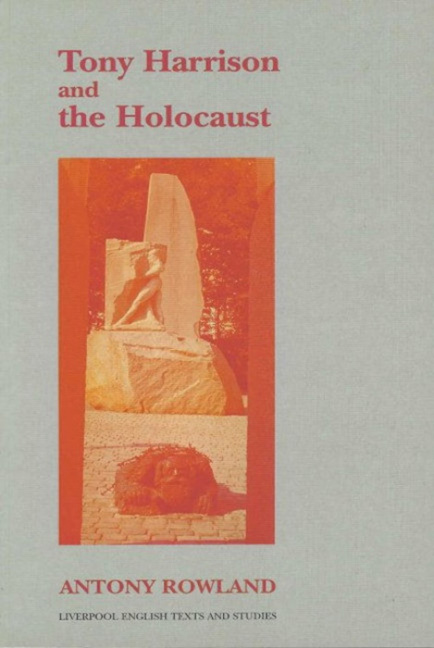Book contents
- Frontmatter
- Dedication
- Contents
- Acknowledgements
- Introduction
- 1 Cinema, Masturbation and Peter Pan: A Non-Victim Approach to the Holocaust
- 2 Amorous Discourse and ‘Bolts of Annihilation’ in the American Poems
- 3 Mourning and Annihilation in the Family Sonnets
- 4 The Fragility of Memory
- 5 Culture/Barbarism Dialectics in Harrison's Poetry
- Bibliography
- Index
3 - Mourning and Annihilation in the Family Sonnets
- Frontmatter
- Dedication
- Contents
- Acknowledgements
- Introduction
- 1 Cinema, Masturbation and Peter Pan: A Non-Victim Approach to the Holocaust
- 2 Amorous Discourse and ‘Bolts of Annihilation’ in the American Poems
- 3 Mourning and Annihilation in the Family Sonnets
- 4 The Fragility of Memory
- 5 Culture/Barbarism Dialectics in Harrison's Poetry
- Bibliography
- Index
Summary
Mourning, our Contemporary
Elegies are gloriously self-indulgent poems that exult in melancholic reiterations of the dead. Along with the amorous, elegiac mourning forms a central concern in Harrison's oeuvre; it is most extensively explored in the second, or ‘family sonnets’, section of the ‘School of Eloquence’. Mourning is often confused with grieving: both denote the amorous subject's sorrow and regret for the loss, and celebration of, a loved object. However, grief denotes a common psychological state that forms only part of a process of coming to terms with absence; it is this wider phenomenon that might be more accurately termed ‘mourning’. The distinction is illustrative, since Harrison engages with a number of different modes of mourning in his work: the response to loss is satirical and irreverent in Palladas: Poems, elegiac and classical in ‘The Mother of the Muses’, loving and intimate in ‘Losing Touch’, anticipatory and nostalgic in the television programme Black Daisies for the Bride, sensual and exuberant in ‘Timer’, sentimental and apocalyptic in ‘Long Distance’, and intellectual and playful in the series Loving Memory. Perhaps most striking within these texts is the amount of literary material on mourning introjected by Harrison. Throughout his poetry there are references to elegists, such as Virgil and William Butler Yeats in ‘Study’, John Milton and Thomas Gray in ‘On Not Being Milton’ and William Wordsworth in ‘Remains’. As with Geoffrey Hill's remoulding of canonical material in the wake of the Holocaust in ‘September Song’, traditional structural motifs of elegies are examined rigorously in Harrison's work. Milton's bitter rejections of classical modes of grieving in Lycidas are mixed with the tender, yet often ironic, tone of Hardy's elegies; Harrison inherits this literary framework, and then adjusts it in order to satisfy the modalities of mourning for his own parents. Late-twentieth-century elegies within the European tradition tend to reject humanist appeals to utopia, emancipation or any other form of consolation evident in the melancholic poetry of Shelley or Milton. As Paul Hamilton has argued, contemporary elegists such as Douglas Dunn ‘play through premature conclusions’ bequeathed by this ‘aristocratic and selfish’ poetic genre. Similarly, Harrison invokes, and then rejects, the structural motifs of traditional elegies, drawing on non-literary models of mourning, such as public attempts to ‘work through’ the atrocities committed during the Second World War.
- Type
- Chapter
- Information
- Tony Harrison and the Holocaust , pp. 144 - 194Publisher: Liverpool University PressPrint publication year: 2001



